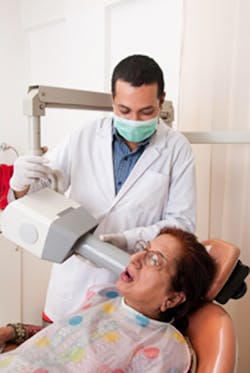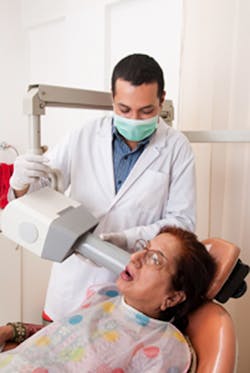Why invest in training your dental team?
Dentists and other health practitioners often resist training their team. Why? They’re concerned that their team might leave after gaining thorough knowledge. They believe training will result in their time and money going to waste. But what happens if dentists don’t train their teams to deliver expert service?
Training constitutes a very important aspect of the overall working culture. It can not only improve your business performance, but can also result in a greater profit with increased team morale. Counting on a cohesive and well-trained team leads to an unanticipated amount of freedom to the otherwise stressed out dentist. This also allows the dentist to focus on his or her core job of practicing dentistry.
Benefits of investing in training your dental team
As a practicing dentist, you have the option of training your team either in hard skills (setting up the appointment book, sterilizing instruments, etc.) or soft skills (efficient customer service, answering the phone, etc.). In both the cases you as the doctor will reap the following benefits:
1. A team that is likely to stay for the long-term
Enforcing comprehensive training for the team can actually translate into a long-term investment. The team will not only feel valued, but will also grow in their professional career. As a result they are more likely stay with you instead of seeking a change.
With a well-trained team you’re not as likely to spend your hard-earned resources on such things as advertising for new staff, reference checking, and loss of productivity.
2. A more productive team providing better services
Training will clarify the roles and responsibilities of each team member. They will precisely know their job description and as such will be more efficient at carrying out their tasks. As a result, your team will be much more efficient.
3. Team members will know the impact of their behavior
Many team members and even dentists are unaware of the non-verbal and verbal cues they send their patients that mark a great difference between patients gaining a positive or negative experience in the practice. A good training session can provide the team with an opportunity to analyze their behaviors while performing their job.
4. Loyal customers, not just to the dentist but to the entire team
Whether your team members are answering clients’ phone calls, supporting the dentist chairside, or booking appointments, they have the opportunity to build upon clients’ trust, support, and loyalty for the practice. If these roles are not carried out smoothly, there is the chance of jeopardizing client relationships with your practice.
5. Less stressed dentist
A practitioner dentist carries a lot of responsibilities on his or her shoulders. A well-trained team is capable of carrying out some of these duties with precession and effectiveness. Therefore, the more training a team obtains, the more the dentist can relax and let go of some of these responsibilities, and know they’re in good hands.


